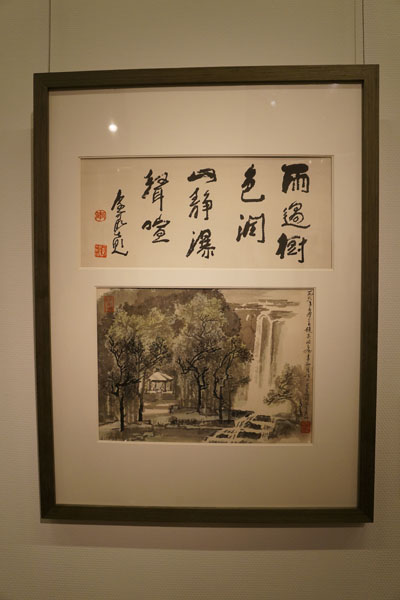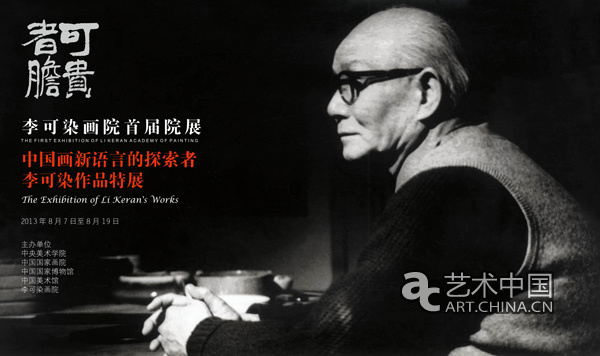Li Keran commemorated for water painting reform
- By Wu Jin
 0 Comment(s)
0 Comment(s) Print
Print E-mail China.org.cn, August 8, 2013
E-mail China.org.cn, August 8, 2013
The Chinese water paintings of Li Keran (1907-1989) selected for the exhibition at China’s National Art Museum on August 7, 2013, show us the course of development this art form has taken throughout history, including its critical turning point -- in which Li played a major role according to many modern-day art critics.
Li lived in an era when the oriental civilization was crashed by the occidental modernization and the agrarian culture gradually lost its charm. Like most of his contemporaries, Li had received a diverse training in painting composed of both traditional Chinese water painting and Western oil painting.
Based on these two starkly different forms of painting, Li created his own personal style by introducing the skill of sketching into traditional water painting -- freehand brush work.
"Mr. Li is a distinguished artist who started a new chapter for Chinese water painting in the 20th Century. He created his own theories which influenced many painters of later generations," said Gao Hong, secretary of the Communist Party of China (CPC) committee of the Central Academy of Fine Arts.
From the tranquil lotus pond to the gleaming leafy mountains after the rain, Li’s paintings rarely unveil the hard times facing those painters involved in the drastic social changes of the 20th century China. Wang Luxiang, host of Phoenix TV’s cultural programs and former professor with the Academy of Art and Design at Tsinghua University, revealed Li’s relentless efforts in reviving the art of water painting.
"History is like a river, sometimes it flows so fast that it becomes a raging torrent which often makes a splash," Wang said.
According to Wang, Li lived in that period after the founding of People’s Republic of China, when the art of Chinese water painting met with huge skepticism as whether it should continue to be preserved and inherited or not. To save the art from the brink of extinction, Li argued fiercely for the necessity of the continuous existence of the traditional painting style. Nevertheless, when his arguments proved powerless, Li and his colleagues took action. They took a trip from Beijing to southeastern China along which they painted arduously.
Through their relentless efforts, those paintings, later exhibited in Beijing’s Beihai Park in 1954, were considered exquisite and society started to change its view on traditional Chinese painting.
Had he not received systematic training of two kinds of painting early on, Li would not have been able to shoulder the historical responsibility of reforming, and in fact saving, the art of Chinese water painting, Wang said. “Li and his contemporaries had won the survival ticket for Chinese water painting.”
 |
|
One of Li Keran's Paintings at the National Art Museum of China |
According to Wang, the 1980s saw much criticism directed at the artist Xu Beihong (1895-1953), best known for his horse paintings. Some artists claimed Xu’s painting, which also introduced the skill of sketching, damaged the freehand style used in water painting. However, Li, who had reached his autumn years by that time, argued that his water paintings would have been much better had he practiced sketching harder.
Gone are the stories of the previous generation’s painting masters, but their works, neatly arranged at the exhibition according to shade and color, have retained their charm.“It is not only because of their perfect command of the painting skills, but also because of their eruditeness and integrity that they were the masters,” said Liu Xiaolin, art critic and art event planner with Beijing Traveler-on -Earth Culture and Media Co. Ltd.
The exhibition incorporates several paintings from Xu and Qi Baishi and will be open to visitors till August 19, 2013.







Go to Forum >>0 Comment(s)